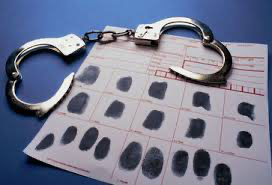Processing
Criminal activity has always been an integral part of society. The emergence of the first criminal offenses reflects the complexity of the evolution of society and the formation of its values. Since then, the protection of individual rights and the fight against crime have become an integral part of the legal system. In this article, we will consider the role of lawyers in this process, as well as their functions and impact on society.
The first criminal offenses had their roots in various aspects of community life. These can be thefts, physical attacks, violations of public order, etc. Often such crimes were related to the need for survival and conflicts in society.
The first attempts to establish responsibility for crimes can be traced back to ancient civilizations. In some ancient societies, there were laws and regulations that regulated the behavior of citizens and provided punishment for violations. For example, in ancient Rome, laws were established that regulated property and damages in the event of theft or crimes against personal safety.
However, the first step towards the creation of a modern criminal justice system was made in medieval Europe, when the first written codes and laws appeared that defined crimes and prescribed punishments for their commission. For example, the Code Napoleon, passed in 1804, established a new system of criminal law for France and other countries that were under the influence of the French Empire.
In the 20th century, international legal documents appeared that established standards of justice and responsibility for crimes. For example, the Universal Declaration of Human Rights, adopted by the UN in 1948, defines the rights and freedoms of every person and establishes the principles of a fair trial.
First felony offenses range from simple theft to serious crimes such as murder. Features of such crimes may include the use of force or threats, violation of the law or violation of public order.
Here are some examples of criminal offenses:
Theft, robbery:
Characteristics: Illegal possession of someone else's property without the owner's permission.
Example: Theft of money, car, electronics, etc.
Physical attacks:
Characteristics: Causing harm or injury to another person without their consent.
Example: Beatings, threats of violence, physical conflicts, etc.
Fraud:
Characteristic: Deception for benefit or material gain.
Example: Phone fraud, Internet fraud, fake documents, etc.
Violation of public order:
Characteristics: Actions that disturb the peace and security of the community.
Example: Gross violation of public order, drunkenness in public places, vandalism, etc.
Murder:
Characteristics: Deliberate cleaning up of another person's life.
Example: Premeditated murder, murder in the heat of an argument, crimes of passion, etc.
Rape:
Characteristics: Sexual or physical aggression against the victim's will.
Example: Rape, sexual assault, sexual harassment, etc.
These types of crimes represent different aspects of criminal activity and reflect the variety of criminal acts that are committed in society.
Modern lawyers play a key role in the protection of individual rights and the fight against criminality. They provide their clients with legal support throughout the legal process, including investigation, trial and appeal procedures.
A criminal lawyer also provides legal advice and support during the investigation, assists in trial preparation, represents the client's interests in court and provides evidence of their innocence.
The role of lawyers in the fight against criminal offenses is not only in the protection of human rights and freedoms, but also affects society as a whole. They contribute to the maintenance of justice, ensure fairness in the judicial process and help in the prevention of criminal activity through educational work and the development of legal culture. Only thanks to their work, it is possible to ensure an effective fight against criminal activity and ensure the rights and freedoms of every citizen.
































